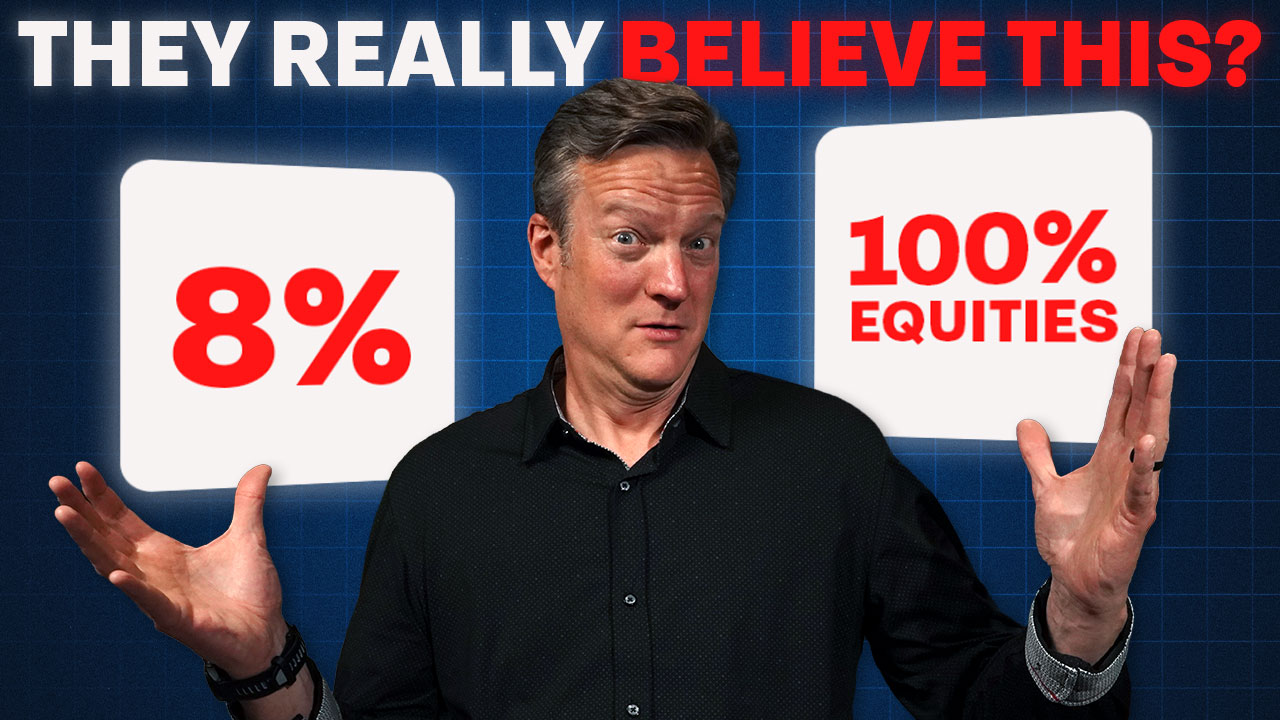We're going to move on to Andrew's question next. "I would be interested to learn how the guys have avoided lifestyle creep or are still avoiding it. My wife and I are in our mid-30s; we have no debt, and we have an income that will be $450k this year, and we're afraid of the lifestyle creep. So, I mean, I feel like we have to know—shout out to him—very successful. But I think that this is a good question for his unique situation, but for everyone that's moving up in income and our financial mutants."
Can I speak candidly here? Is that okay? I'm gonna—it's just us, right? It's just us hanging out. I want to be very clear with you, Andrew. I'm not—I mean, I have not avoided lifestyle creep. I really haven't. Like it's something that, you know, as things have changed, the decisions that we make from a financial aspect have changed. The decisions we're making now at this age and stage of life are different than they were five years ago, ten years ago, fifteen years ago.
I want to stop there and say that's okay. That's not necessarily a bad thing. Lifestyle creep, in and of itself, is not inherently negative, so long as you're making sure that just in the same way your lifestyle is creeping, so too your savings behavior is also creeping. So, one of the biggest things that we tell people to put in place is a 'pay yourself first' forced scarcity type situation. So, if you know that your income is going to be $450,000, in your mind, you need to go ahead and think, 'Okay, I know I've got to save 20 to 25 percent of that gross income for the future.'
So, I'm going to work through the
financial order of operations. If you hold the thing, run. I'm going to work through it. I'm going to make sure I've got an emergency fund. I'm going to do my Roth IRAs. I'm going to do my HSA backdoor Roth IRAs. At your income, I'm going to do HSAs. I'm going to go max out my employer-sponsored retirement accounts. And you have to figure out that 20 to 25 percent. Am I hitting that number? If you are and you're checking that box, then I'm going to advocate it's okay for your lifestyle to creep. It's okay if you go on nicer vacations, if you buy the nicer home, if you have the nicer car, if you spend more on shampoo or distinction.
So, you're saying because I sometimes inherently think of lifestyle creep as living outside of your means, but like that's not necessarily the case. Like your lifestyle is naturally going to build. That's right with your success. If you look at the Hansons right now, it's just a different picture than it was ten years ago. But that's okay. That's not necessarily a bad thing. Agree or disagree?
I just—I find, and this is one of those fun things about it, is, and Andrew, you're on that journey where you're trying to understand your relationship with money and what, how do you maximize the use of a tool but also not let it essentially become you and own you and become, in a lot of ways, an idol. Because I think a lot of people, there's a lot of pressure. And once I started making enough money, because at $450,000, you are at an abundance level of income.
You know, it's this weird disconnect. The consumption world is telling you, 'Go buy the luxury car, go buy the bigger house, you can afford it.' And then you're like, 'But do I get enjoyment from that? Where was the goal post?' Because I always, here's what grounding exercise I do. I think about my 22-year-old self, and I think about what or even younger. Like, I remember when I was in college, I went out on one date with this girl that I had met when I was visiting at Auburn, hanging out with some buddies. And I went to her parents' house because she was originally from Atlanta, and went and picked her up. I remember going to her parents' house, I'm like, 'Holy cow, these people are rich.' I mean, I thought it was rich. I was like, 'These people are loaded.' And now, I mean, I think if I saw that same house, I would be like, 'That's a nice house, but it's nothing crazy.' But 20-year-old Brian was like, 'These people are living on a different plane than I am.'
And I always try to go back to that, internalize that, and be like, 'Brian, do you need to keep shifting?' Because I go on these tour homes here in Williamson County, and you see these houses that are selling for $6 to $11 million, and I just, and I look at the showers, and I go, 'The shower probably doesn't feel that different.' Yeah, they've got a little more freezer space, but I'll put a fridge out in my garage, and it'll be okay.
There's things like that that I just, I want you to have to be careful because consumption will be pushed upon you at all stages of your life. But if you, if you will spend a little time, you know, Ramit does a good job of talking about find out what you love, and then, you know, go after that aggressively. But find out if there are other things that, you know, kind of society puts upon you that you don't love that, you know, but yet society is telling you you should do these things. You know, and it can be all kinds of things. You know, there's, you know, I've found in my own life, I love building memories with my family. So, I travel in really nice ways, and I have no problem buying the memories and that stuff. But I am in my neighborhood. Like, I live in a very nice home, but I have no desire to try to kick it up a notch.
Because I'm also at this weird spot, and this is something that we got to offer it again on the building as yesterday, and I think about this because I was talking to Carter this morning, is that I'm at the stage of life now where I think about, like, yes, I could go buy, like, an exotic car. We'll go beyond a luxury and just say exotic car so that everybody looks at you when you drive down the street. I could go do that, but I get more enjoyment out of, like, when we bought a commercial building, and then I get more—you know, there's just, I think about what my money can do for me and what it can fulfill from life goals and create abundance, and then, you know, create memories.
You have to really spend some time understanding what your relationship with money is because you could keep moving the goal post forever. And there's a lot of people that I see make great incomes, but they never turn it into wealth. That is, rich and high income as you essentially have all the trappings of being rich, but you don't actually have wealth. And the quiet part, the net worth statement is actually creating more than you can with your brain and your hands.
For somebody making $450,000, that's a big ask. So, you better go ahead and start measuring yourself. Go to
learn.moneyguy.com, look at our
net worth tool, start tracking your net worth, and start challenging to see if your assets and what they generate every year start in any way or shape getting close to what you earn, because that's also a big responsibility if you make that type of money. It's going to take a lot to replace that.
So, you better get on board with saving and investing for the future. But then, always humble yourself. So, it's a tool, not something that defines you completely. And that's the big part that I've enjoyed. I've enjoyed the journey. The journey is part of the reward for me. So, that money is not because I realize how empty it is if you don't actually understand the why and the fulfillment and the abundance of—remember, abundance is wealth plus purpose. If you don't have the why, the purpose, you're going to find it's really empty. For more information, check out our
free resources.











